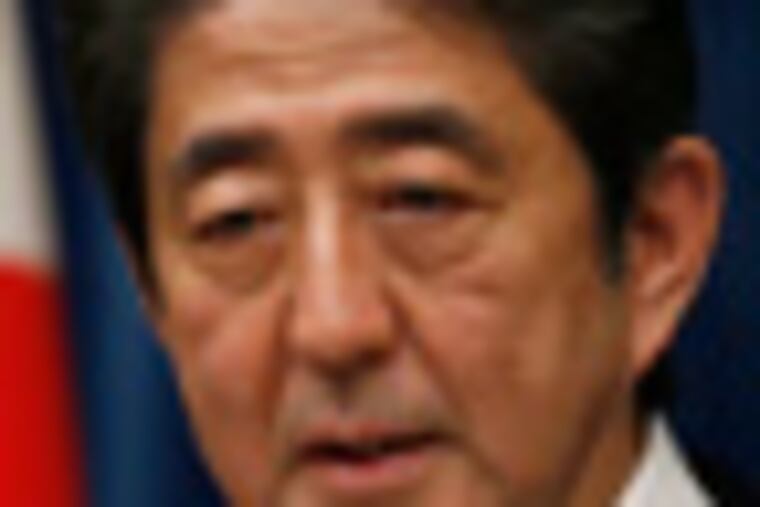Japan's new premier focuses on crises
TOKYO - Shinzo Abe took office as Japan's seventh prime minister in six years Wednesday and vowed to overcome the deep-rooted economic and diplomatic crises facing his country.

TOKYO - Shinzo Abe took office as Japan's seventh prime minister in six years Wednesday and vowed to overcome the deep-rooted economic and diplomatic crises facing his country.
Abe was elected as Japan's leader hours earlier Wednesday, bringing back to power the conservative, pro-business Liberal Democratic Party that governed for most of the post-World War II era. It replaces the liberal-leaning government of the Democratic Party of Japan that lasted three years.
"A strong economy is the source of energy for Japan. Without regaining a strong economy, there is no future for Japan," Abe told his first news conference after becoming prime minister for the second time.
Calling his administration a "crisis breakthrough Cabinet," Abe promised to launch bold economic measures to pull Japan out of deflation. He also vowed to step up an alliance with the United States to stabilize Japan's diplomacy shaken by increasing territorial threats from its neighbors.
Abe, whose nationalist positions have in the past angered Japan's neighbors, was also prime minister in 2006-2007 before resigning for health reasons that he says are no longer an issue.
The outspoken and often hawkish leader has promised to restore growth to an economy that has been struggling for 20 years. His administration also faces souring relations with China and a complex debate over whether resource-poor Japan should wean itself off nuclear energy after last year's earthquake and tsunami caused a meltdown at an atomic power plant.
On top of that, he will have to win over a public that gave his party a lukewarm mandate in elections on Dec. 16, along with keeping at bay a still-powerful opposition in the parliament. Though his party and its Buddhist-backed coalition partner is the biggest bloc in the more influential lower house, Abe actually came up short in the first round of voting in the upper house, then won in a runoff.
Capitalizing on voter discontent with the Democratic Party of Japan, Abe has vowed to shore up the economy, deal with a swelling national debt and come up with a fresh recovery plan following last year's tsunami.